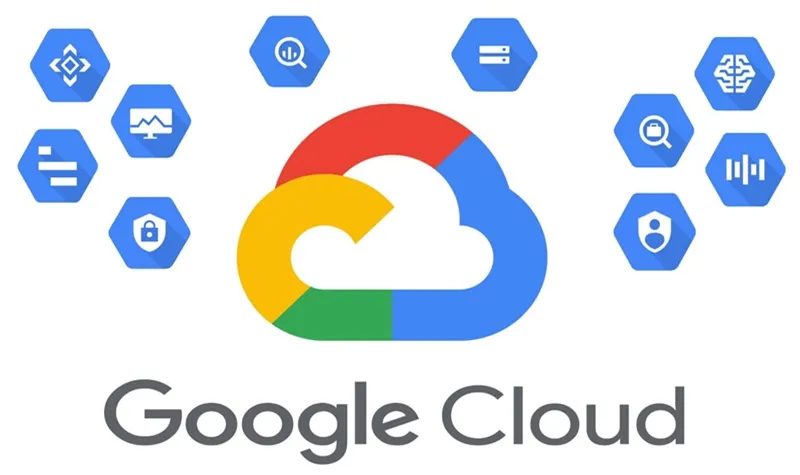
Google Virtual Private Cloud Plans, Features, and Pricing
Google Virtual Private Cloud (VPC) is a powerful cloud networking solution provided by Google Cloud Platform (GCP). It enables users to create their own virtual network environments in the cloud, offering secure and scalable infrastructure for deploying applications and services. With Google VPC, organizations can establish their private networks and have complete control over IP address ranges, subnets, and network configuration. The key strength of Google VPC lies in its robust features and capabilities. Users can define custom IP address ranges for their VPC and create subnets to segment their network. This allows for efficient resource allocation and isolation of different components within the network. Additionally, Google VPC provides advanced networking features such as firewall rules, load balancing, and virtual private network (VPN) connections to ensure secure and seamless communication between resources.

Google VPC is built with scalability in mind. Organizations can easily scale their VPC resources up or down based on demand, adding or removing virtual machines, storage, or network components as needed. This flexibility allows businesses to adapt to changing requirements and optimize resource utilization, ultimately improving cost efficiency. Furthermore, Google VPC integrates seamlessly with other Google Cloud services, providing a comprehensive ecosystem for building cloud-based solutions. Users can leverage services like Google Compute Engine, Google Cloud Storage, and Google Kubernetes Engine within their VPC environment. This tight integration enables organizations to take advantage of a wide range of cloud capabilities and build sophisticated, scalable applications.
Google Virtual Private Cloud (VPC) offers organizations a secure and scalable networking solution within the Google Cloud Platform. With its robust features, scalability, and seamless integration with other Google Cloud services, Google VPC empowers businesses to deploy their applications and services with confidence, ensuring optimal performance, security, and flexibility in the cloud.
About Google Virtual Private Cloud
Google Virtual Private Cloud (VPC) is a fundamental networking service provided by Google Cloud Platform (GCP) that enables users to create their own virtual network environments in the cloud. It allows organizations to build scalable and isolated networks to securely deploy their applications and services. With Google VPC, users have full control over their virtual network configuration. They can define IP address ranges, subnets, and routing tables according to their specific requirements. This flexibility allows for efficient resource allocation and network segmentation, providing enhanced security and performance.
One of the key features of Google VPC is its robust security model. It allows users to define firewall rules, access controls, and VPN connections to secure their network traffic. Additionally, Google VPC is built on Google’s global infrastructure, which benefits from Google’s advanced security measures, including data encryption, DDoS protection, and regular security audits.
Scalability is another important aspect of Google VPC. Users can easily scale their VPC resources up or down as needed, without interruptions or downtime. This ensures that organizations can accommodate changing workloads and handle increased traffic or resource demands efficiently. Moreover, Google VPC integrates seamlessly with other Google Cloud services, allowing users to leverage additional capabilities within their virtual network environment. Services such as Google Compute Engine, Google Kubernetes Engine, and Google Cloud Storage can be easily integrated, enabling organizations to build comprehensive and scalable cloud solutions.
Google Virtual Private Cloud (VPC) is designed to provide organizations with a secure and scalable networking solution in the cloud. It serves several key purposes:
- Network Isolation: Google VPC allows organizations to create isolated virtual networks within the Google Cloud Platform. This isolation ensures that each organization’s resources and data are separated from others, providing enhanced security and privacy.
- Resource Deployment: With Google VPC, organizations can deploy their applications, services, and resources within their own dedicated virtual network. They have control over IP address ranges, subnets, and routing, allowing for efficient resource allocation and management.
- Security and Access Control: Google VPC offers robust security features, including network-level firewall rules, access controls, and virtual private network (VPN) connections. This enables organizations to implement strict security policies, control access to their resources, and protect sensitive data.
- Scalability and Flexibility: Google VPC is designed to be highly scalable, allowing organizations to easily scale their network resources up or down based on their needs. This scalability ensures that the network can handle increased workloads and traffic without compromising performance.
- Integration with Google Cloud Services: Google VPC seamlessly integrates with other Google Cloud services, enabling organizations to take advantage of a wide range of cloud capabilities. Services like Google Compute Engine, Google Kubernetes Engine, and Google Cloud Storage can be easily integrated within the VPC, providing additional functionality and flexibility.
In summary, Google Virtual Private Cloud (VPC) serves as a secure and scalable networking solution for organizations in the Google Cloud Platform. It offers network isolation, resource deployment capabilities, robust security features, scalability, and integration with other Google Cloud services, allowing organizations to build and manage their cloud infrastructure effectively.
Examples of products using Google VPC
Several notable products and services rely on Google Virtual Private Cloud (VPC) for their cloud infrastructure needs. Here are a few examples:
- Spotify: The popular music streaming platform, Spotify, utilizes Google VPC to power its cloud infrastructure. By leveraging VPC’s secure and scalable networking capabilities, Spotify can ensure the smooth delivery of music content to millions of users worldwide.
- Evernote: Evernote, the note-taking and productivity application, utilizes Google VPC to provide a secure and reliable cloud infrastructure for storing and syncing user data across devices. VPC enables Evernote to maintain data privacy and offer seamless access to notes and files across various platforms.
- HSBC Bank: HSBC Bank, one of the world’s largest banking and financial services institutions, utilizes Google VPC to build a secure and compliant cloud environment. By leveraging VPC’s networking capabilities and robust security features, HSBC can ensure the protection of sensitive customer data and provide reliable banking services.
- Snapchat: Snapchat, the popular multimedia messaging app, relies on Google VPC to power its cloud infrastructure. VPC allows Snapchat to handle the massive volume of multimedia content shared by users while maintaining the security and scalability needed for a seamless user experience.
- Coca-Cola: Coca-Cola, the global beverage company, uses Google VPC to support its cloud-based services and applications. By leveraging VPC’s network isolation and scalability features, Coca-Cola can securely manage its cloud infrastructure, ensuring the efficient distribution and availability of its products worldwide.
These examples demonstrate how organizations across various industries leverage Google VPC to build secure, scalable, and reliable cloud infrastructures for their products and services. Google VPC enables these companies to focus on their core business functionalities while relying on a robust and flexible networking solution in the cloud.
Google Virtual Private Cloud Plans & Prices
Google Cloud Platform (GCP) offers a variety of plans and pricing options for Virtual Private Cloud (VPC). The plans and prices are based on the following factors:
- Region: The price per vCPU-hour varies by region.
- Machine type: The price per vCPU-hour varies by machine type.
- Committed use: You can get a discount on the price per vCPU-hour if you commit to using a certain amount of capacity for a certain period of time.
- Data transfer: You are charged for the amount of data that you transfer in and out of your VPC.
You can find more information about GCP VPC pricing on the GCP website.
Here are some examples of GCP VPC pricing:
- Pay-as-you-go: For a 1 vCPU instance with 3.75 GB of memory in the us-central1 region, the hourly price is $0.05.
- Committed use: For a 1 vCPU instance with 3.75 GB of memory in the us-central1 region, the monthly price is $30.
- Data transfer: The price for data transfer out of the us-central1 region is $0.01 per GB.
Here are some tips for reducing the cost of GCP VPC:
- Use the right machine type: If you use too many vCPUs and memory, you’ll be charged more than you need to be.
- Use data transfer optimization: GCP offers data transfer optimization, which can help you reduce the amount of data transfer charges you incur.
- Use reserved capacity: GCP offers reserved capacity discounts for GCP VPC. If you commit to using a certain amount of capacity for a certain period of time, you can save money.
Here are some additional tips for reducing the cost of GCP VPC:
- Use a managed service: There are a number of managed services that can help you to reduce the cost of GCP VPC. These services can handle the provisioning, management, and monitoring of your GCP VPC infrastructure, so you can focus on your data.
- Use a hybrid cloud approach: If you have some workloads that can be run on-premises and some that can be run in the cloud, you can use a hybrid cloud approach to save money. You can run your on-premises workloads on your own hardware and run your cloud workloads on GCP.
- Use a community cloud: If you are part of a community, you can use a community cloud to save money. A community cloud is a shared cloud that is owned and operated by a community of organizations. You can use the community cloud to run your workloads and save money on the cost of infrastructure.
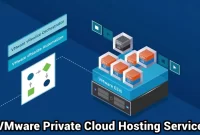

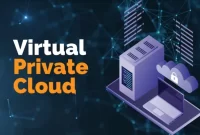


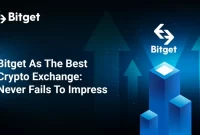
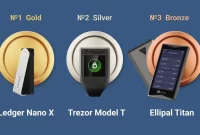
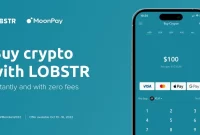
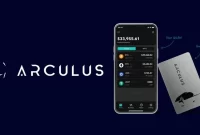
I always wait for the latest post, never miss it. This is my way of adding insight and knowledge about the Internet.
I spend more time on the Internet on this site, providing a great reading experience. Detailed and clear discussion, everything is very neatly arranged.
I really enjoy the theme/design of your site. Simple and easy to use for me who is old. I love reading articles on this site.
Excellent site. A lot of helpful information here. I am
sending it to several friends ans additionally sharing in delicious.
And of course, thank you in your sweat!
Nice post. I’m learning something completely new and challenging on sites that I discover every day. It’s always useful to read articles from other authors and use something from this site.
I need to to thank you for this very good read!! I definitely enjoyed every little bit of it.
I’ve got you book-marked to check out new stuff you post…
I’ve come across this site several times and managed to solve my problem. Thank you for providing the best solution!
Thanks for the great writing. It was actually that entertainment account. Look forward to much more fun from you! This makes it very easy for me!
It’s really amazing, I found all the information I need here.
This design is incredible! You certainly know how to keep a reader entertained.
Between your wit and your videos, I was almost moved to start my own blog (well, almost…HaHa!) Excellent job.
I really enjoyed what you had to say, and more than that, how
you presented it. Too cool!
I enjoy looking through a post that can make people think. Also, many thanks for allowing
me to comment!